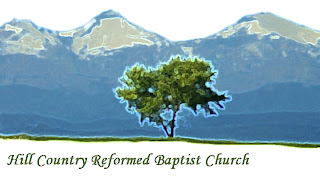The scales of justice, and the Lady depicted often with them is symbolic of weighing evidence against an accused person for committing a crime. Often the statue is blindfolded which symbolizes impartiality, that the case would be weighed and measured by its merits only, not on appearances, wealth, status, etc. So how does this relate to Christianity?
All religions world-wide except for orthodox Christianity have what is called a works-based salvation. In order to be saved, you must do more good than bad. They take this scales of justice and create a balance of good vs. bad (they were never meant to measure a criminals goodness vs. vileness...). If you do more good than bad, you will be accepted into heaven. I once asked a Muslim if he was going to heaven, and his answer was that there was no way of knowing, and that in itself was motivation to continue to "do good things." He was content with finding out what God would say when he meets him after death. I think he was being somewhat dishonest. I think that he stopped thinking about his salvation because if he were to think about it, he would realize that he has a lot of work to do, and that in fact he'd be in a lot of trouble. This is not just a Muslim problem, but one that has infected Christian circles as well.
In our society of spirituality, there are many that think they are "good" people and that God, if He is in fact a loving God, HAS to let them into heaven on their merits. They are looking to the scales of justice as a scale of "goodness" and they believe because they haven't killed anyone, they qualify as good. Ask many church goers today and you will hear much of the same stuff. Where does Jesus come in? Let's look at what Jesus says about what is good. He says in Mark 10:17-18: 17 uAnd as he was setting out on his journey, a man ran up and vknelt before him and asked him, “Good Teacher, what must I do to winherit eternal life?” 18 And Jesus said to him, “Why do you call me good? No one is good except God alone.
If only God is good, then where does that leave us? Jesus says to his followers in Matthew 7:11 "11 If you then, dwho are evil, know how to give good gifts to your children, how much more will zyour Father who is in heaven give good things to those who ask him!" We are evil in all we do. Even if we were to use the scales of justice incorrectly as a means of goodness, we would still be left wanting...badly. Any deeds we do without the proper motive of glorifying God alone is wicked, and considered worthy of being called a filthy tampon. (Isa. 64:6) Imagine that. We have no righteousness in anything we do apart from Christ. When we meet God after death, we will be in front of the judgement seat of God (Heb. 9:27). He will either declare you righteous in His eyes because of the person and work of Christ, or He will declare you guilty of breaking His Holy laws and your evil works on your own merit.
Can I implore you to consider your lawlessness and need for Christ, the One who took your punishment so that you can live for Him?



